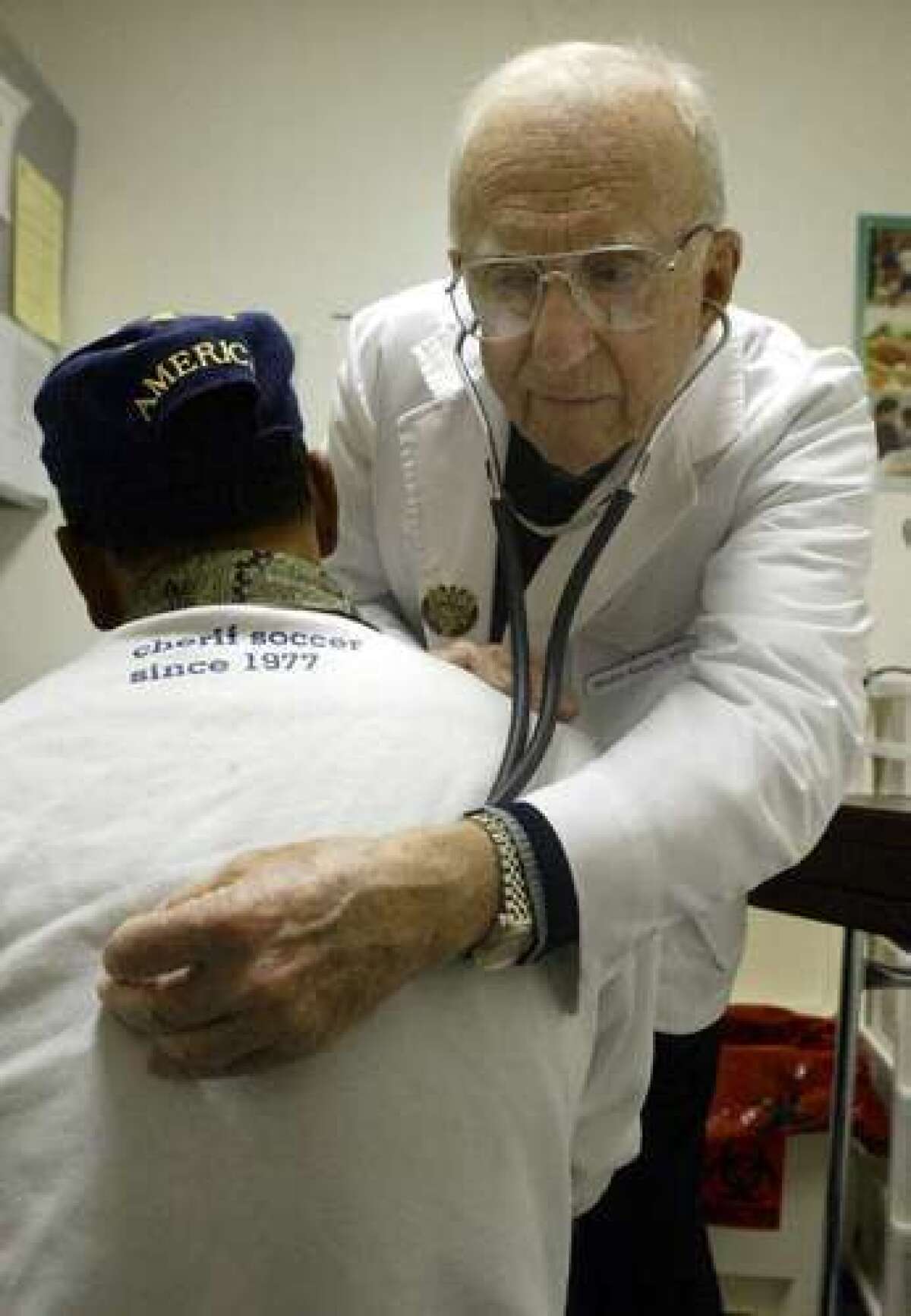Great Recession forced all Americans to cut back on medical care

- Share via
Though the Great Recession took a much larger toll on African Americans and Latinos than on whites, members of all three groups were forced to cut back on medical services as a result of the economic downturn, research shows.
Karoline Mertensen and Jie Chen of the University of Maryland’s Department of Health Services Administration wondered whether the recession was having a disproportionate effect on minorities. After all, they noted, by 2009 the unemployment rate among African Americans was 14.8% and 12.1% for Latinos, while remaining at a relatively low 8.7% for whites. Black and Latino families also saw much greater declines in median household wealth – 53% for blacks and 66% for Latinos – than did whites (16%). And with 25% of blacks and Latinos losing their jobs (along with 15% of whites), there was plenty of reason to fear that their access to healthcare might be more severely curtailed.
To find out, the researchers turned to data from the Medical Expenditure Panel Survey, which tracks healthcare use among more than 54,000 U.S. adults. They compared survey results from 2005-06, before the recession hit, and 2008-09, when it was in full swing.
The data showed that before the recession, African Americans and Latinos had fewer doctor’s appointments and filled fewer prescriptions than their white counterparts. But members of all three groups’ numbers declined after the economy tanked. More specifically:
-- Average doctor visits for whites fell from 7.34 before the recession to 6.95 after, and average prescription drug refills dropped from 14.08 to 13.44.
-- For blacks, the average number of doctor visits declined from 5.75 to 5.29 and prescription refills dipped from 12.93 to 12.74.
-- For Latinos, average doctor visits dropped from 4.51 to 4.14 and prescription refills dropped from 8.40 to 8.09.
In addition, the researchers found that African Americans had fewer hospital stays after the economic crisis than before (dropping from an average of 0.16 in the pre-recession period to 0.14 during the recession) but that hospitalization rates were basically flat for Latinos and whites (0.11 before and 0.10 after for both groups). Also, visits to the emergency room, which were higher for blacks than for Latinos or whites, were essentially unchanged for all groups.
“Although minorities bore the brunt of the recession in terms of losses in employment, income and insurance, our findings suggest that trends in [medical] use patterns were similar across race and ethnicity,” Mertensen and Chen concluded. “The only evidence of ethnic disparities is the statistically significant finding that Hispanics reduced office-based physician visits more than whites during the recession.”
The results were published online Monday in a research letter appearing in JAMA Internal Medicine (the journal formerly known as Archives of Internal Medicine).
You can read a summary of the research letter here. The full report is available to those with a subscription.
Return to the Booster Shots blog.
Follow me on Twitter @LATkarenkaplan
More to Read
Sign up for Essential California
The most important California stories and recommendations in your inbox every morning.
You may occasionally receive promotional content from the Los Angeles Times.














